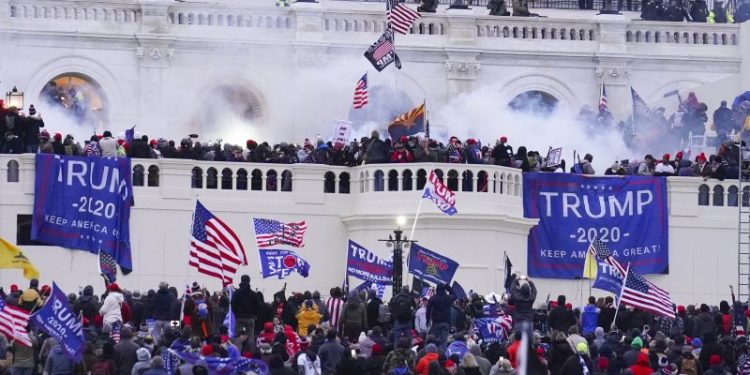The Supreme Court finds itself in a divisive stance regarding the key charge against Jan. 6 rioters and former President Donald Trump. The charge in question revolves around the accusation that Trump and his allies incited the violent events that transpired on January 6, 2021, at the United States Capitol.
The rift within the Supreme Court is reflective of the broader societal divide regarding accountability for the events of January 6. On one hand, some justices argue that Trump’s rhetoric and actions prior to the riot clearly encouraged his supporters to storm the Capitol, thus warranting legal consequences. They believe that holding Trump accountable is crucial for upholding the rule of law and ensuring that no individual, regardless of their political stature, is above the law.
Conversely, other justices contend that the charge against Trump and his allies constitutes a violation of free speech rights. They argue that while Trump’s language may have been controversial and provocative, it did not meet the legal threshold for incitement of violence. These justices emphasize the importance of protecting First Amendment rights, even in cases where the speech in question may be deemed offensive or objectionable.
The debate within the Supreme Court underscores the complexities involved in addressing the fallout from January 6. It raises fundamental questions about the limits of free speech, the responsibilities of public officials, and the ability of the legal system to hold individuals accountable for their actions.
As the Supreme Court deliberates on the key charge against Jan. 6 rioters and Trump, it faces the challenge of balancing competing interests – the need for accountability and the protection of constitutional rights. The outcome of this case will likely have far-reaching implications for the future of political discourse and accountability in the United States.

















